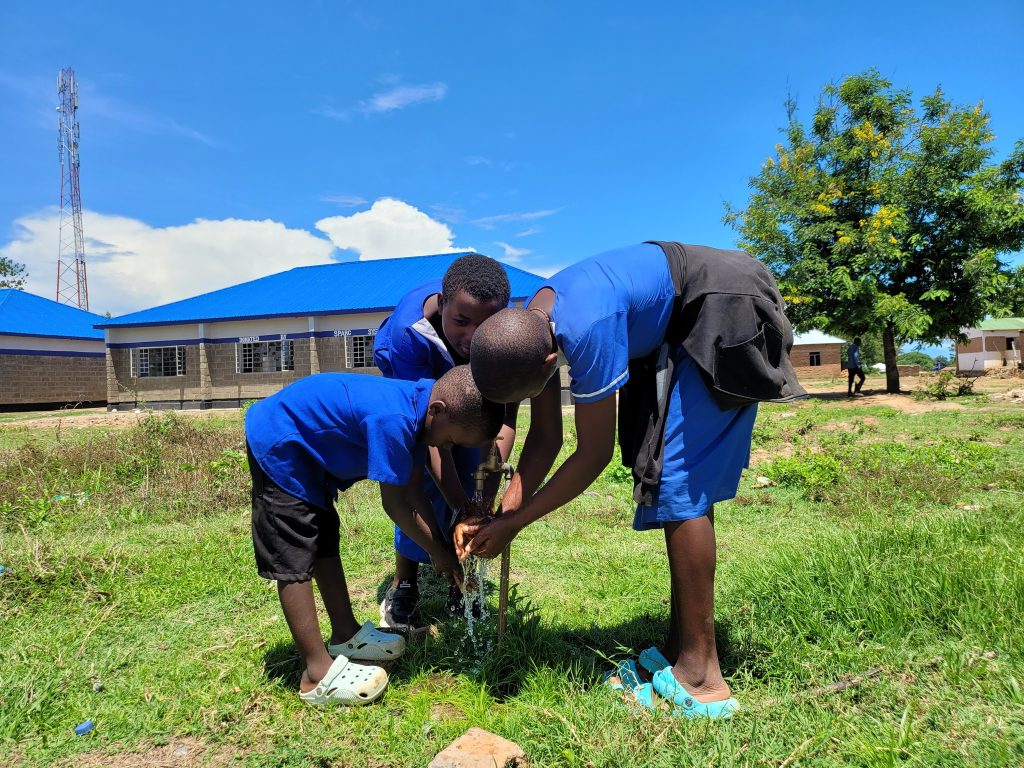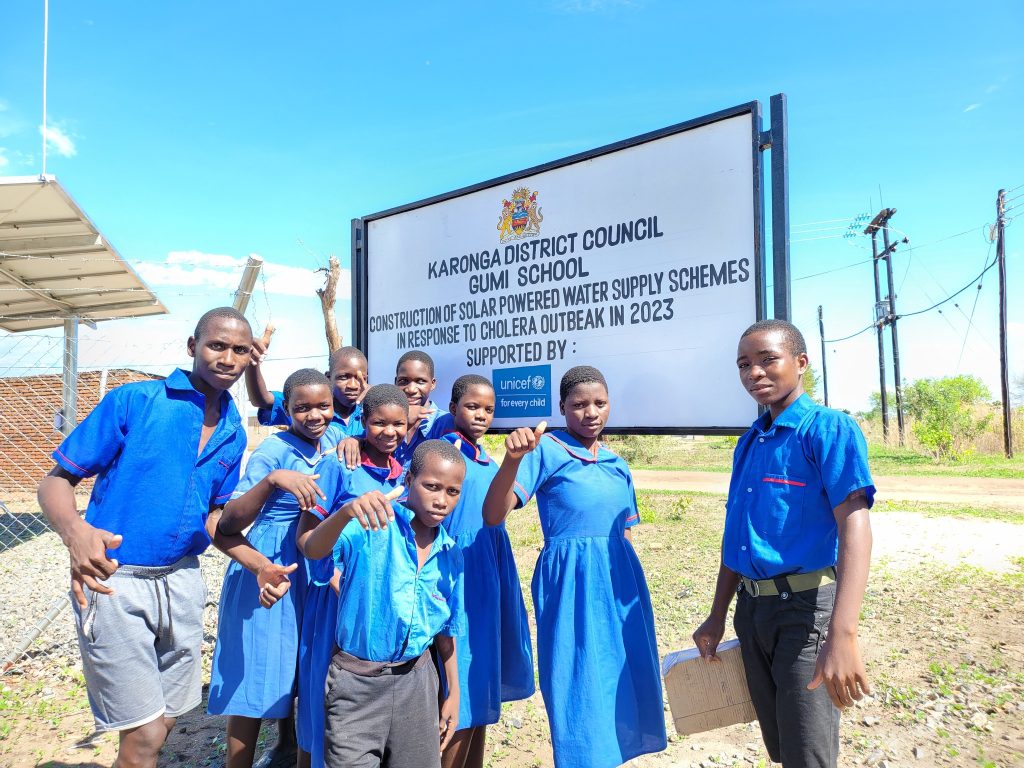Water for community health
Two years ago, Rodah Silumbu’s performance at Kiwe Primary School in Karonga District took a nosedive as she used to travel long distances to fetch water.
The Standard Six girl says she used to arrive in class too tired to learn and hardly had time to study. At times, she would be absent from school due to waterborne diseases.

“I was greatly affected and teachers were worried about my falling performance. Since the water we were accessing was not treated, I was exposed to waterborne diseases,” she recalls.
Rodah, 13, is among over 1 200 learners who now enjoy uninterrupted water supply at her school.
The new water supply system taps the water from Kaporo Health Centre in the vicinity.
Unicef, with funding from USAid’s Bureau of Humanitarian Assistance, supported the installation of a solar-powered water scheme complete with twin 10 000-litre water tanks.
“Personal hygiene and sanitation at our school has greatly improved. Apart from drinking safe water, we find it easy to mop our classrooms and surroundings. We also wash our hands regularly.
The water has also improved our menstrual hygiene as well as our performance in class. I am now one of the top performers at this school,” said Rodah.
Kaporo Health Centre’s environmental health officer Benson Mithi says improved access to safe water has saved the surrounding community from sanitation-related diseases, including diarrhoea such as cholera.

He says: “Before, numerous tests we carried out showed that community members were using unsafe water.
“This hospital was never short of cases of waterborne diseases, but now that’s history.”
The tap stands also provide clean and safe water for the nearby market.
“Six water points within the surrounding community cater for 347 households,” Mithi says.
Unicef has assisted the Malawi Government to install similar water supply schemes in Kaporo, Wililo, Hara and Fulirwa health facilities.
The solar-powered water systems safe water supply to Ukanga, Gumi and Kazeze primary schools.
Tendai Sichali, 15, sat Primary School Leaving Certificate of Education (PSLCE) examinations at Gumi Primary School.
He says safe water means everything to him as a learner at a boarding school. The school enrols 37 boarders and 620 day-scholars.
“With unrestricted access to clean water, I keep my body, clothes, hostels, classrooms and utensils tidy at all times,” Sichali says.
For sustainable management and ultilisation of solar powered water systems, community members contribute money based on the water usage at their respective kiosks.
The communal fund is used to buy chlorine, clean the tanks and repair the system.
Karonga district water development officer Marcel Kaunda says solar-powered water schemes have proved to be ideal and user friendly for rural communities.
Mithi explains: “Access to safe water is one of the pillars of the Sustainable Development Goals. With these systems, Karonga has made a lot of gains in improving access to safe water.
“The system supplies a lot of water than the hand-pumps which are mostly shallow wells.”
According to Karonga District Water Office, the seven solar-powered systems provide safe water to about 16 500 of the 75 102 households in the district. Mithi says more systems are required to expand access to safe water across the district.





